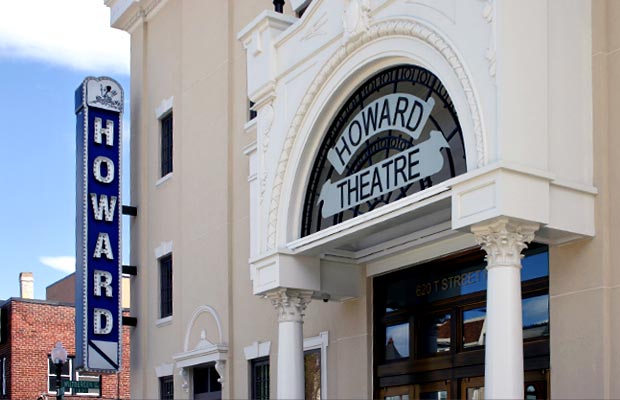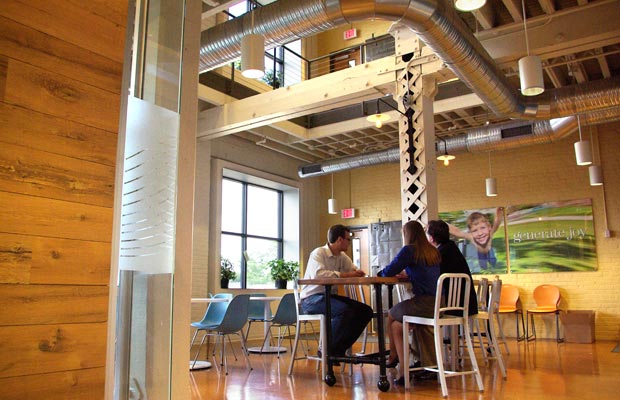Goal 3
Economic Vitality

The Howard Theater
Washington, DC
The Howard Theater, once the center of “Black Broadway” in Washington, DC, reopened after three decades of decay to rave reviews and instantly became a beacon for the revitalization of the Shaw neighborhood. LISC provided $3.9 million to get the historic restoration started, which includes not just a 1,000-seat theater but also a gourmet restaurant with a 5-star menu designed by celebrity chef Marcus Samuelsson. A new era has begun for the Howard and for the neighborhood.

Larkin “U” Building
Buffalo, New York
LISC is helping revitalize a once-booming Buffalo manufacturing district and creating jobs in the process. LISC utilized $8.5 million of our New Markets Tax Credit allocation to convert the “U” building in the Larkin District from a vacant manufacturing facility into Class A headquarters space for First Niagara Bank, which also provided financing for the project. In doing so, the project created and preserved 350 jobs capping a year in which the partnership between the Larkin Development Group, LISC, and the Old First Ward Community Association restored three vacant mixed-use properties adjacent to the “U” Building, and rolled out a home improvement program, funded privately by First Niagara Bank, to aid nearby homeowners.

People’s Food Co-op
Kalamazoo, Michigan
Healthy, organic foods are now available in Kalamazoo’s Northside River’s Edge district. Michigan LISC provided a $400,000 loan to build and relocate the People’s Food Co-op, a 40-year old natural food store, quadrupling store space. The Co-op sponsors programs that promote locally grown foods and efforts to make fresh foods accessible to low-income families. More than 1,500 community residents have become part owners by joining the Co-op, which is also open to the broader community for shopping. True to its healthy outlook, the building was constructed with advanced green features such as solar lighting tubes, rainwater recycling, and energy efficient coolers that reduce utility consumption by 30 percent.
Crumbling commercial corridors undermine the prospects for families and communities. Just as dramatically, economic development can reverse that declining course. By creating opportunities for retailers and service providers to set up shop, we help ensure residents can shop for the goods and services they need in their own neighborhood. Successful local businesses help forestall blight and crime, and they reinforce investments in housing and other development efforts. They might involve innovative micro-enterprises, retooled industrial sites or lively new arts and entertainment districts. They all contribute the quality of life of nearby neighbors and the health of the communities that surround them.
LISC invests in projects and plans designed to support entrepreneurship, attract new businesses to under-served areas, and stimulate job creation in the places that need it most.